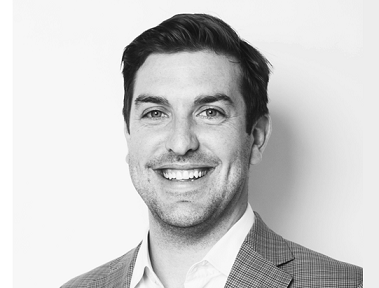The year to come will bring change for advisors. Dave Nugent offers three ways to grow your bottom line by embracing it instead of fighting it

The year ahead will be one of significant change in the Canadian financial services industry. Full disclosure of fees and performance courtesy of CRM2, along with the continued growth of fintech firms offering low-cost services, will put pressure on advisory business models. But change can mean opportunity for those who embrace it.
Identify where you add value
Picking stocks and mutual funds used to be central to the value proposition of advisors. However, investors can now easily assemble a diversified portfolio of index funds or ETFs at a low cost using a robo-advisor or on their own.
With a robo, the investor gets automatic dividend reinvestment, portfolio rebalancing and tax-loss harvesting. The value proposition of an advisor who picks stocks and mutual funds depends on their ability to outperform such a passive, low-cost approach, and a significant body of evidence indicates that this is extremely difficult. Unless you’re confident you have the ability to pick the next Facebook or star fund manager, it’s better to focus on areas where your value-add is a sure thing.
The media likes to position robo-advisors as a replacement for human advisors; as someone who runs a robo, I disagree. There are many things human advisors do that provide value to clients and justify their fee. Maybe it’s your relationship with your clients – a trusted advisor is uniquely able to help a client stay disciplined in their investment strategy and avoid destructive performance-chasing behaviour. Or maybe your expertise is in financial and tax planning. For many clients, a sound financial plan and tangible advice that helps them minimize taxes can add more value than choosing an optimal mix of investments.
Know what your advice is worth
With new fee disclosures on the way, it’s critical to be able to confidently explain to a client with, say, a $1 million portfolio why your services are worth $10,000 per year. Other professionals, such as lawyers and accountants, charge on an hourly basis, but advisors add value in ways that do not lend themselves to precise quantification. Value can be added in large increments unevenly (e.g. during market downturns), and it’s impossible to know what a client would have done differently without your advice.
In its Advisor Alpha report, Vanguard contends that an advisor can add as much as 300 basis points of value per year. That’s a nice stat, but it’s important to have an idea of what you specifically bring to the table that surfaces some of that potential value.
If you focus on tax planning, quantify the tax savings your advice on asset location would have generated. If you focus on retirement planning, how much did your withdrawal strategy add to your client’s bottom line? If you specialize in building relationships and coaching clients, how much time did you spend with them?
Maximize the time you spend doing value-add activities
A good exercise is to look at your revenue over 2016 and divide it by your hours – that’s your hourly rate. To increase this rate, you need to think about how you’re spending your time.
Most advisors spend their first years taking on every client they can. But as your book grows, it’s crucial to become selective about working with clients for whom you can add the most value. Segment your book, hire a junior advisor to deal with smaller accounts, or sell clients to someone else. You can even use a robo-advisor platform to create a farm system for your clients and take clients back once they meet your threshold.
Technology can help you spend more time on value-adds. By embracing the technologies available today, advisors can increase productivity and provide a better experience for clients. Tools like Docusign and Yodlee eliminate much of the paperwork associated with opening new accounts, while video conferencing can reduce travel time without eliminating face-to-face client interactions.
There’s no question that significant change is coming to the financial industry, and advisors who fail to adapt will be at a disadvantage. However, if you embrace new technology, focus on high-value activities and use fee disclosure as an opportunity to discuss the value you add, you can develop stronger, stickier relationships with your clients and thrive in this evolving environment.
Dave Nugent is the chief investment officer at Wealthsimple, Canada’s leading online investing service, which he co-founded in 2014. Previously, he was an investment advisor with RBC Dominion Securities.



